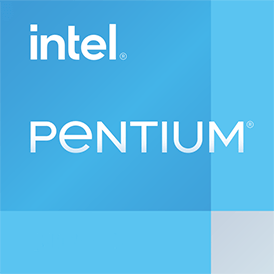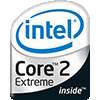
Intel Pentium G3258 Benchmark, Test and specs
Last updated:
The Intel Pentium G3258 has 2 cores with 2 threads and is based on the 5. gen of the Intel Pentium series. The processor uses a mainboard with the LGA 1150 socket and was released in Q2/2014. The Intel Pentium G3258 scores 721 points in the Geekbench 5 single-core benchmark. In the Geekbench 5 multi-core benchmark, the result is 1,582 points.

| Name: | Intel Pentium G3258 |
|---|---|
| Family: | Intel Pentium (150) |
| CPU group: | Intel Pentium G3000 (14) |
| Architecture: | Haswell S |
| Segment: | Desktop / Server |
| Generation: | 5 |
| Predecessor: | -- |
| Successor: | -- |
CPU Cores and Base Frequency
The Intel Pentium G3258 has 2 CPU cores and can calculate 2 threads in parallel. The clock frequency of the Intel Pentium G3258 is 3.20 GHz. The number of CPU cores greatly affects the speed of the processor and is an important performance indicator.
| CPU Cores / Threads: | 2 / 2 |
|---|---|
| Core architecture: | normal |
| Cores: | 2x |
| Hyperthreading / SMT: | No |
|---|---|
| Overclocking: | Yes |
| Frequency: | 3.20 GHz |
| Turbo Frequency (1 Core): | -- |
| Turbo Frequency (2 Cores): | -- |
Internal Graphics
The Intel Pentium G3258 has integrated graphics, called iGPU for short. Specifically, the Intel Pentium G3258 uses the Intel HD Graphics (Haswell GT1), which has 80 texture shaders and 10 execution units. The iGPU uses the system's main memory as graphics memory and sits on the processor's die.
| GPU name: | Intel HD Graphics (Haswell GT1) |
|---|---|
| GPU frequency: | 0.35 GHz |
| GPU (Turbo): | 1.15 GHz |
| Compute units: | 10 |
| Shader: | 80 |
| Hardware Raytracing: | No |
| Release date: | Q4/2012 |
| Max. displays: | 3 |
|---|---|
| Generation: | 7.5 |
| Direct X: | 11.1 |
| Technology: | 22 nm |
| Max. GPU Memory: | 2 GB |
| Frame Generation: | No |
Hardware codec support
A photo or video codec that is accelerated in hardware can greatly accelerate the working speed of a processor and extend the battery life of notebooks or smartphones when playing videos.
| h265 / HEVC (8 bit): | No |
|---|---|
| h265 / HEVC (10 bit): | No |
| h264: | Decode / Encode |
| VP8: | No |
| VP9: | No |
| AV1: | No |
|---|---|
| AVC: | Decode / Encode |
| VC-1: | Decode |
| JPEG: | Decode |
Memory & PCIeThe processor can use up to 32 GB memory in 2 (Dual Channel) memory channels. The maximum memory bandwidth is 25.6 GB/s. The memory type as well as the amount of memory can greatly affect the speed of the system. |
|
| Memory type: | Memory bandwidth: |
|---|---|
| DDR3-1600 | 25.6 GB/s |
| Max. Memory: | 32 GB |
| Memory channels: | 2 (Dual Channel) |
| ECC: | Yes |
| PCIe: | 3.0 x 16 |
| PCIe Bandwidth: | 15.8 GB/s |
Thermal ManagementThe thermal design power (TDP for short) of the processor is 53 W. The TDP specifies the necessary cooling solution that is required to cool the processor sufficiently. The TDP usually gives a rough idea of the actual power consumption of the CPU. |
|
|---|---|
| TDP (PL1 / PBP): | 53 W |
| TDP (PL2): | -- |
| TDP up: | -- |
| TDP down: | -- |
| Tjunction max.: | -- |
Technical details
The Intel Pentium G3258 is made in 14 nm. The smaller the manufacturing process of a CPU, the more modern and energy-efficient it is. Overall, the processor has 3.00 MB cache. A large cache can greatly speed up the processor's speed in some cases such as games.
| Technology: | 14 nm |
|---|---|
| Chip design: | Monolithic |
| Socket: | LGA 1150 |
| L2-Cache: | -- |
| L3-Cache: | 3.00 MB |
| AES-NI: | Yes |
| Operating systems: | Windows 10, Linux |
| Virtualization: | VT-x, VT-x EPT, VT-d |
|---|---|
| Instruction set (ISA): | x86-64 (64 bit) |
| ISA extensions: | SSE4.1, SSE4.2 |
| Release date: | Q2/2014 |
| Release price: | 65 $ |
| Part Number: | -- |
| Documents: | Technical data sheet |
Rate this processor
Benchmark results

The benchmark results for the Intel Pentium G3258 have been carefully checked by us. We only publish benchmark results that have been created by us or that have been submitted by a visitor and then checked by a team member. All results are based on and fullfill our benchmark guidelines.
Cinebench R23 (Single-Core)
Cinebench R23 is the successor of Cinebench R20 and is also based on the Cinema 4 Suite. Cinema 4 is a worldwide used software to create 3D forms. The single-core test only uses one CPU core, the amount of cores or hyperthreading ability doesn't count.

|
Intel Core i7-7700HQ
4C 8T @ 3.80 GHz |
||

|
Intel Core i3-N300
8C 8T @ 3.80 GHz |
||

|
Intel Processor N95
4C 4T @ 3.40 GHz |
||
|
|
Intel Pentium G3258
2C 2T @ 3.20 GHz |
||

|
Intel Core i3-8100
4C 4T @ 3.60 GHz |
||

|
Intel Core i5-4670
4C 4T @ 3.80 GHz |
||

|
Intel Core i5-4670K
4C 4T @ 3.80 GHz |
||
Cinebench R23 (Multi-Core)
Cinebench R23 is the successor of Cinebench R20 and is also based on the Cinema 4 Suite. Cinema 4 is a worldwide used software to create 3D forms. The multi-core test involves all CPU cores and taks a big advantage of hyperthreading.

|
Intel Xeon X3440
4C 8T @ 2.53 GHz |
||

|
Intel Celeron N5095
4C 4T @ 2.50 GHz |
||

|
Intel Celeron N5095A
4C 4T @ 2.50 GHz |
||
|
|
Intel Pentium G3258
2C 2T @ 3.20 GHz |
||

|
AMD Athlon 3000G
2C 4T @ 3.50 GHz |
||

|
Intel Core i7-2720QM
4C 8T @ 2.20 GHz |
||

|
AMD Athlon Gold 3150C
2C 4T @ 2.40 GHz |
||
Geekbench 5, 64bit (Single-Core)
Geekbench 5 is a cross plattform benchmark that heavily uses the systems memory. A fast memory will push the result a lot. The single-core test only uses one CPU core, the amount of cores or hyperthreading ability doesn't count.

|
Intel Core i5-2450P
4C 4T @ 3.50 GHz |
||

|
Intel Core i5-2390T
2C 4T @ 3.50 GHz |
||

|
Intel Xeon X3470
4C 8T @ 3.60 GHz |
||
|
|
Intel Pentium G3258
2C 2T @ 3.20 GHz |
||

|
Intel Core i7-4712MQ
4C 8T @ 3.30 GHz |
||

|
Intel Pentium G4400T
2C 2T @ 2.90 GHz |
||

|
Intel Pentium G3420
2C 2T @ 3.20 GHz |
||
Geekbench 5, 64bit (Multi-Core)
Geekbench 5 is a cross plattform benchmark that heavily uses the systems memory. A fast memory will push the result a lot. The multi-core test involves all CPU cores and taks a big advantage of hyperthreading.

|
AMD Athlon II X4 860K
4C 4T @ 4.00 GHz |
||

|
Intel Core 2 Extreme QX9770
4C 4T @ 3.20 GHz |
||

|
Intel Core i5-7Y54
2C 4T @ 2.60 GHz |
||
|
|
Intel Pentium G3258
2C 2T @ 3.20 GHz |
||

|
AMD Phenom II X4 840T
4C 4T @ 3.20 GHz |
||

|
Intel Core i3-3250
2C 4T @ 3.50 GHz |
||

|
Qualcomm Snapdragon 675
8C 8T @ 2.00 GHz |
||
Geekbench 6 (Single-Core)
Geekbench 6 is a benchmark for modern computers, notebooks and smartphones. What is new is an optimized utilization of newer CPU architectures, e.g. based on the big.LITTLE concept and combining CPU cores of different sizes. The single-core benchmark only evaluates the performance of the fastest CPU core, the number of CPU cores in a processor is irrelevant here.

|
Intel Core i7-3820QM
4C 8T @ 3.70 GHz |
||

|
Intel Xeon E5-2670 v2
10C 20T @ 3.30 GHz |
||

|
Intel Celeron G4900
2C 2T @ 3.10 GHz |
||
|
|
Intel Pentium G3258
2C 2T @ 3.20 GHz |
||

|
Intel Pentium G3420
2C 2T @ 3.20 GHz |
||

|
Intel Core i5-4300Y
2C 4T @ 2.30 GHz |
||

|
Intel Core i3-5015U
2C 4T @ 2.10 GHz |
||
Geekbench 6 (Multi-Core)
Geekbench 6 is a benchmark for modern computers, notebooks and smartphones. What is new is an optimized utilization of newer CPU architectures, e.g. based on the big.LITTLE concept and combining CPU cores of different sizes. The multi-core benchmark evaluates the performance of all of the processor's CPU cores. Virtual thread improvements such as AMD SMT or Intel's Hyper-Threading have a positive impact on the benchmark result.

|
Qualcomm Snapdragon 712
8C 8T @ 2.30 GHz |
||

|
Intel Pentium G3460
2C 2T @ 3.50 GHz |
||

|
Intel Core i3-4330TE
2C 4T @ 2.40 GHz |
||
|
|
Intel Pentium G3258
2C 2T @ 3.20 GHz |
||
|
|
HiSilicon Kirin 960
8C 8T @ 2.40 GHz |
||

|
UNISOC T700
8C 8T @ 1.80 GHz |
||

|
Intel Core i7-870S
4C 8T @ 2.66 GHz |
||
Cinebench R20 (Single-Core)
Cinebench R20 is the successor of Cinebench R15 and is also based on the Cinema 4 Suite. Cinema 4 is a worldwide used software to create 3D forms. The single-core test only uses one CPU core, the amount of cores or hyperthreading ability doesn't count.

|
Intel Core i7-3630QM
4C 8T @ 3.40 GHz |
||

|
Intel Core i5-4590T
4C 4T @ 3.00 GHz |
||

|
Intel Core i5-4210M
2C 4T @ 3.20 GHz |
||
|
|
Intel Pentium G3258
2C 2T @ 3.20 GHz |
||

|
AMD A10-9700
4C 4T @ 3.80 GHz |
||

|
Intel Core m3-8100Y
2C 4T @ 3.40 GHz |
||

|
Intel Core i5-3210M
2C 4T @ 3.10 GHz |
||
Cinebench R20 (Multi-Core)
Cinebench R20 is the successor of Cinebench R15 and is also based on the Cinema 4 Suite. Cinema 4 is a worldwide used software to create 3D forms. The multi-core test involves all CPU cores and taks a big advantage of hyperthreading.

|
AMD Phenom II X3 720
3C 3T @ 2.80 GHz |
||

|
Intel Core i5-4210U
2C 4T @ 2.35 GHz |
||

|
Intel Core i3-7100U
2C 4T @ 2.40 GHz |
||
|
|
Intel Pentium G3258
2C 2T @ 3.20 GHz |
||

|
AMD Athlon II X4 600e
4C 4T @ 2.20 GHz |
||

|
Intel Core i7-3667U
2C 4T @ 3.00 GHz |
||

|
Intel Core i3-2350M
2C 4T @ 2.30 GHz |
||
iGPU - FP32 Performance (Single-precision GFLOPS)
The theoretical computing performance of the internal graphics unit of the processor with simple accuracy (32 bit) in GFLOPS. GFLOPS indicates how many billion floating point operations the iGPU can perform per second.

|
Intel Xeon E3-1265L v3
Intel HD Graphics (Haswell GT1) @ 1.20 GHz |
||

|
Intel Atom x7-E3950
Intel HD Graphics 505 @ 0.65 GHz |
||

|
Qualcomm Snapdragon 636
Qualcomm Adreno 509 @ 0.72 GHz |
||
|
|
Intel Pentium G3258
Intel HD Graphics (Haswell GT1) @ 1.15 GHz |
||

|
AMD A4-4020
AMD Radeon HD 7480D @ 0.72 GHz |
||

|
Intel Pentium G3440
Intel HD Graphics (Haswell GT1) @ 1.15 GHz |
||

|
AMD A4-5300B
AMD Radeon HD 7480D @ 0.72 GHz |
||
Estimated results for PassMark CPU Mark
Some of the CPUs listed below have been benchmarked by CPU-monkey. However the majority of CPUs have not been tested and the results have been estimated by a CPU-monkey’s secret proprietary formula. As such they do not accurately reflect the actual Passmark CPU mark values and are not endorsed by PassMark Software Pty Ltd.

|
Intel Core 2 Extreme QX6700
4C 4T @ 2.66 GHz |
||

|
Intel Core 2 Quad Q6700
4C 4T @ 2.66 GHz |
||

|
Intel Core i5-2450M
2C 4T @ 2.50 GHz |
||
|
|
Intel Pentium G3258
2C 2T @ 3.20 GHz |
||

|
Intel Celeron 6305
2C 2T @ 1.80 GHz |
||

|
Intel Core 2 Quad Q9400
4C 4T @ 2.66 GHz |
||

|
Intel Core i5-2435M
2C 4T @ 2.40 GHz |
||
CPU-Z Benchmark 17 (Multi-Core)
The CPU-Z benchmark measures a processor's performance by measuring the time it takes the system to complete all benchmark calculations. The faster the benchmark is completed, the higher the score.

|
Intel Core i5-2520M
2C 4T @ 2.50 GHz |
||

|
Intel Core i5-4300U
2C 4T @ 1.90 GHz |
||

|
AMD A8-7600
4C 4T @ 3.10 GHz |
||
|
|
Intel Pentium G3258
2C 2T @ 3.20 GHz |
||

|
Intel Core i3-540
2C 4T @ 3.06 GHz |
||

|
Intel Core i5-2450M
2C 4T @ 2.50 GHz |
||

|
Intel Pentium G3420
2C 2T @ 3.20 GHz |
||
Cinebench R15 (Single-Core)
Cinebench R15 is the successor of Cinebench 11.5 and is also based on the Cinema 4 Suite. Cinema 4 is a worldwide used software to create 3D forms. The single-core test only uses one CPU core, the amount of cores or hyperthreading ability doesn't count.

|
AMD Ryzen 5 2500U
4C 8T @ 3.60 GHz |
||

|
Intel Core m7-6Y75
2C 4T @ 3.10 GHz |
||

|
Intel Xeon E5-1620 v3
4C 8T @ 3.60 GHz |
||
|
|
Intel Pentium G3258
2C 2T @ 3.20 GHz |
||

|
Intel Core i5-4210H
2C 4T @ 3.50 GHz |
||

|
AMD Ryzen 3 2200U
2C 4T @ 3.40 GHz |
||

|
Intel Pentium Gold G5400T
2C 4T @ 3.10 GHz |
||
Cinebench R15 (Multi-Core)
Cinebench R15 is the successor of Cinebench 11.5 and is also based on the Cinema 4 Suite. Cinema 4 is a worldwide used software to create 3D forms. The multi-core test involves all CPU cores and taks a big advantage of hyperthreading.

|
AMD Phenom II X3 B77
3C 3T @ 3.20 GHz |
||

|
AMD Phenom II X4 900e
4C 4T @ 2.40 GHz |
||

|
Intel Celeron G4920
2C 2T @ 3.20 GHz |
||
|
|
Intel Pentium G3258
2C 2T @ 3.20 GHz |
||

|
Intel Celeron G5905T
2C 2T @ 3.30 GHz |
||

|
Intel Celeron G5900T
2C 2T @ 3.20 GHz |
||

|
Intel Celeron G5900E
2C 2T @ 3.20 GHz |
||
Benchmarks

Cinebench R23 (SC)
586 entries
586 entries

Cinebench R23 (MC)
565 entries
565 entries

Geekbench 5 (SC)
2,488 entries
2,488 entries

Geekbench 5 (MC)
2,461 entries
2,461 entries

Geekbench 6 (SC)
1,755 entries
1,755 entries

Geekbench 6 (MC)
1,703 entries
1,703 entries

Cinebench R20 (SC)
656 entries
656 entries

Cinebench R20 (MC)
604 entries
604 entries

FP32 SP (iGPU)
2,042 entries
2,042 entries

PassMark CPU-Mark
2,392 entries
2,392 entries

CPU-Z Benchmark 17 (MC)
733 entries
733 entries

Cinebench R15 (SC)
1,106 entries
1,106 entries

Cinebench R15 (MC)
1,101 entries
1,101 entries

Geekbench 3 (SC)
942 entries
942 entries

Geekbench 3 (MC)
938 entries
938 entries

Cinebench R11.5 (SC)
825 entries
825 entries

Cinebench R11.5 (MC)
836 entries
836 entries

Cinebench R11.5 iGPU
383 entries
383 entries
Popular comparisons
back to index





